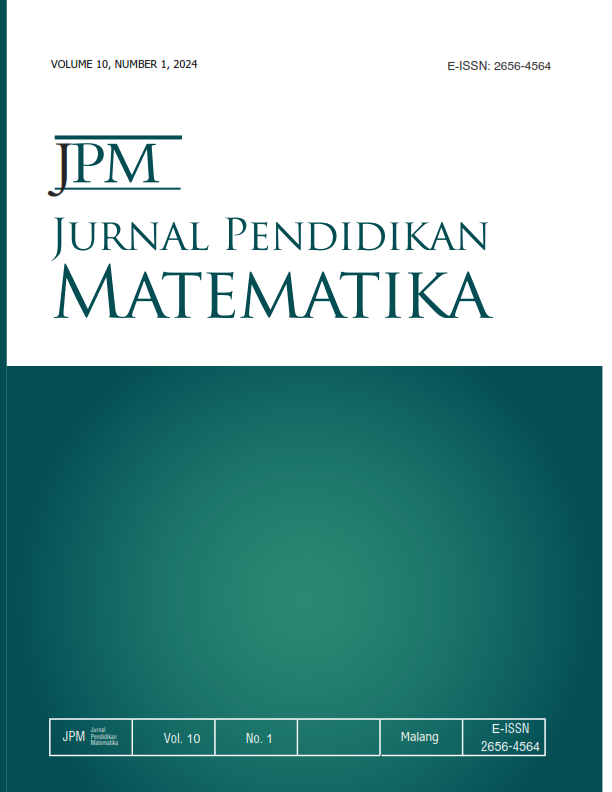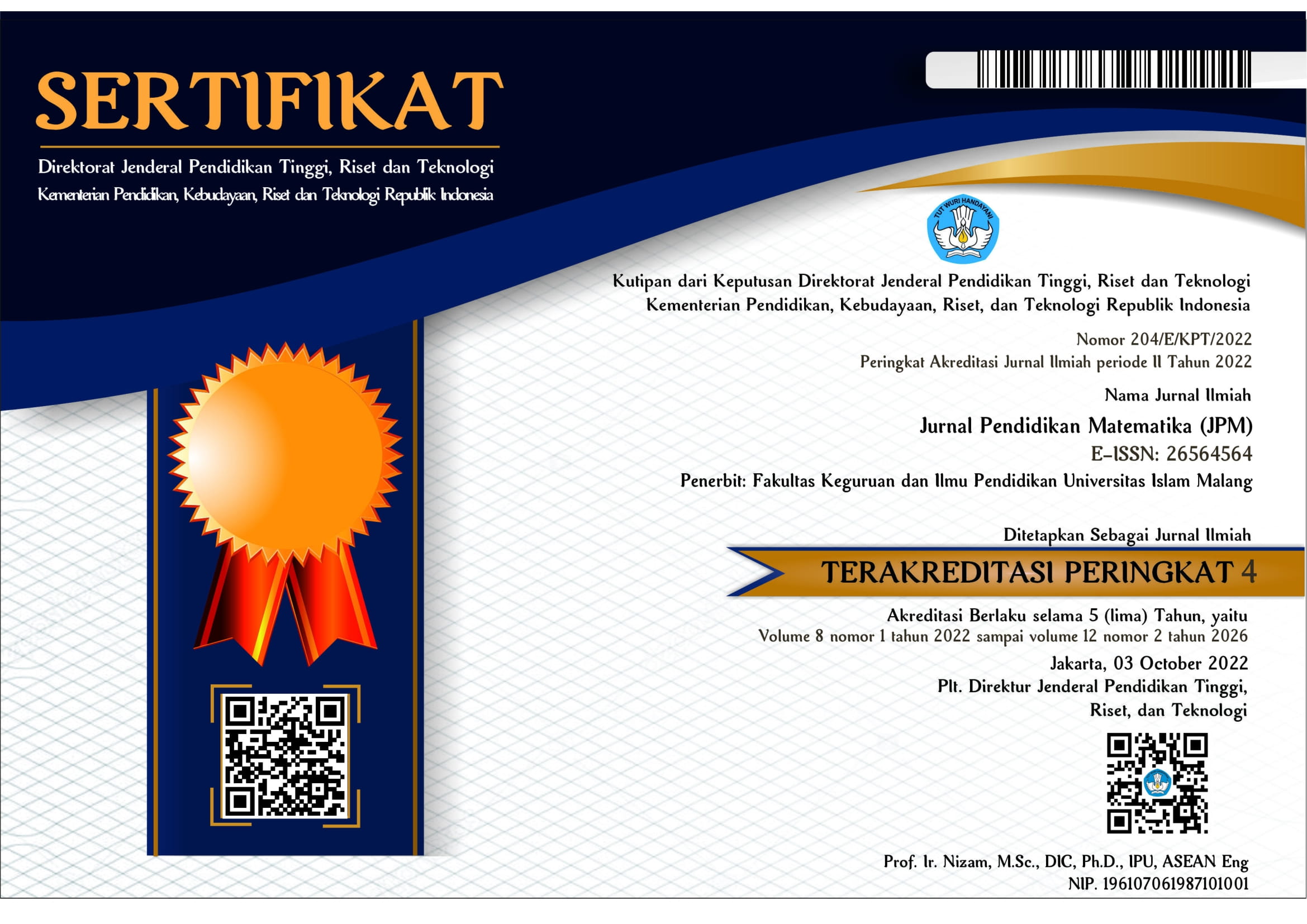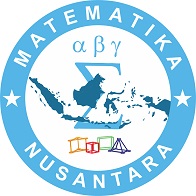The Effect of STEM-Based Mathematics Learning on Critical Thinking Ability of Elementary School Students
DOI:
https://doi.org/10.33474/jpm.v10i1.20390Keywords:
critical thinking skills, STEM-based mathematics learningAbstract
Critical thinking skills are one of the most important 21st century skills for students, and the fact that students' abilities are lacking due to their involvement in the classroom is critical thinking skills. The purpose of this research is to prove that teaching mathematics concepts in STEM schools has or does not have an effect on the critical thinking skills of elementary school students. This research is qualitative with a quasi-experimental type. This study involved 20 Grade V students at SDIT An-Nujaba' Mataran who were included as a sample selected by the saturated sampling technique, the instrument used in this study was a critical thinking ability test. The analysis technique uses the t-test (paired sample t-test). The results of this study indicate that there is a p-value = 0.000 which indicates a significant difference before and after the application of STEM-based mathematics learning. The findings of this study indicate that, with the support of STEM mathematics education, students' critical thinking skills have a significant effect. The research of STEM-based learning in critical thinking skills.
References
Ahmad, A.M., Yakob, N. and Ahmad, N.J. (2019) ‘Science, Technology, Engineering and Mathematic (STEM) Education in Malaysia: Preparing the Pre-service Science Teachers’, Journal of Natural Science and Integration, 1(2), p. 159. Available at: https://doi.org/10.24014/jnsi.v1i2.6595.
Atika, R. (2022). Pengaruh Model Pembelajaran Scıence Technology Engıneerıng and Mathematıcs (STEM) terhadap Keterampılan Berpıkır Krıtıs Peserta Dıdık Kelas VII dı MTs Muhammadıyah Penyasawan pada Materı Pemanasan Global. Diakses dari: https://repository.uin-suska.ac.id/59017/
Bangun Susilo and Agustin Ernawati. (2018). ‘Pengaruh Model Pembelajaran Koperatif Tipe Tems Games Tournament ( TGT ) Terhadap’, 5.2 (2018), 111–20.
Febril, A.N. et al. (2022) ‘Pengaruh Pendekatan STEM Terhadap Kem ampuan Berpikir Kritis Peserta Didik : Literature Review The Effect of the STEM Approach on Students ’ Critical Thinking : Literature Review’, Prosiding seminar nasional biologi, 2(2), pp. 974–986.
Florea, N. M., & Hurjui, E. (2015) ‘Critical thinking in elementary school children. Procedia-Social and behavioral sciences’, Tips for Teachers [Preprint].
Instutute of Education Science. (2015). TIMSS 2015 assessment framework. Boston: TIMSS & PIRLS International Study Center, Lynch School of Education.
Lou, S.-J. et al. (2014) ‘Effects of Implementing STEM-I Project-Based Learning Activities for Female...’, International Journal of Distance Education Technologies, 12(1), pp. 52–73. Available at: https://www.learntechlib.org/p/168158/ (Accessed: 25 July 2023).
Mardhiyatirrahmah, L., Muchlas, M., & Marhayati, M. (2020) ‘Dampak Positif Dan Faktor-Faktor Yang Mempengaruhi Penerapan Pendekatan Stem Pada Pembelajaran Matematika Di Sekolah’, Jurnal Pendidikan Matematika, 6(2), pp. 78–88. Available at: https://doi.org/10.33474/jpm.v6i2.5299.
National Research Council. (1989). Everbody Counts : A Riport To The Nation On The Future Of Mathematics Education. Washington, D.C.: National Academy Press.
NATIONAL ACADEMIES PRESS (US) .(2006). Learning to think spatially: GIS as a support system in the K- 12 curriculum, Alternative and Complementary Therapies. Available at: https://doi.org/10.1089/1076280041138243.
Nurhikmayati, I. (2019) ‘Implementasi STEAM Dalam Pembelajaran Matematika’, Didactical Mathematics, 1(2), pp. 41–50. Available at: https://doi.org/10.31949/dmj.v1i2.1508.
Utami, Nur, T. dkk. (2018). Pengembangan Modul Matematika Dengan Pendekatan Science, Technology, Engineering, and Mathematics (STEM) pada Materi Segiempat, 1, jurnal matematika.
Parameswari, P. and Kurniyati, T. (2020) ‘Kemampuan Berfikir Kritis Siswa Dalam Memecahkan Masalah Matematika’, JPM : Jurnal Pendidikan Matematika, 6(2), p. 89. Available at: https://doi.org/10.33474/jpm.v6i2.6606.
Prihayuda Tatang Aditya. (2018). “Pengembangan Media Pembelajaran Matematika Berbasis Web Pada Materi Lingkaran Bagi Siswa Kelas VIII,” Jurnal Matematika Statistika dan Komputasi 15, no. 1 (4 Juli 2018): 64, https://doi.org/10.20956/jmsk.v15i1.4425.
Rahmawati, L., Juandi, D. and Nurlaelah, E. .(2022). Implementası STEM dalam Menıngkatkan Kemampuan Berpıkır Krıtıs dan Kreatıf Matematıs’, AKSIOMA: Jurnal Program Studi Pendidikan Matematika, 11(3), p. 2002. Available at: https://doi.org/10.24127/ajpm.v11i3.5490.
Wawancara dengaan (Rina Andriani), tanggal (20 Februari 2023), (SD IT An Nujaba)
Yusuf, I., Ma’rufi and Nurdin .(2022). ‘Pendekatan STEM untuk Meningkatkan Kemampuan Berpikir Kritis dan Motivasi Belajar Siswa pada Pembelajaran Matematika’, Kognitif: Jurnal Riset HOTS Pendidikan Matematika, 2(1), pp. 26–40. Available at: https://doi.org/10.51574/kognitif.v2i1.404.
Downloads
Published
How to Cite
Issue
Section
License
Copyright (c) 2024 ahmad sahabudin sahabudin, Parhaini Andriani, Muhammad Ghazali

This work is licensed under a Creative Commons Attribution 4.0 International License.






_-_Copy.jpg)
.jpg)
.jpg)










